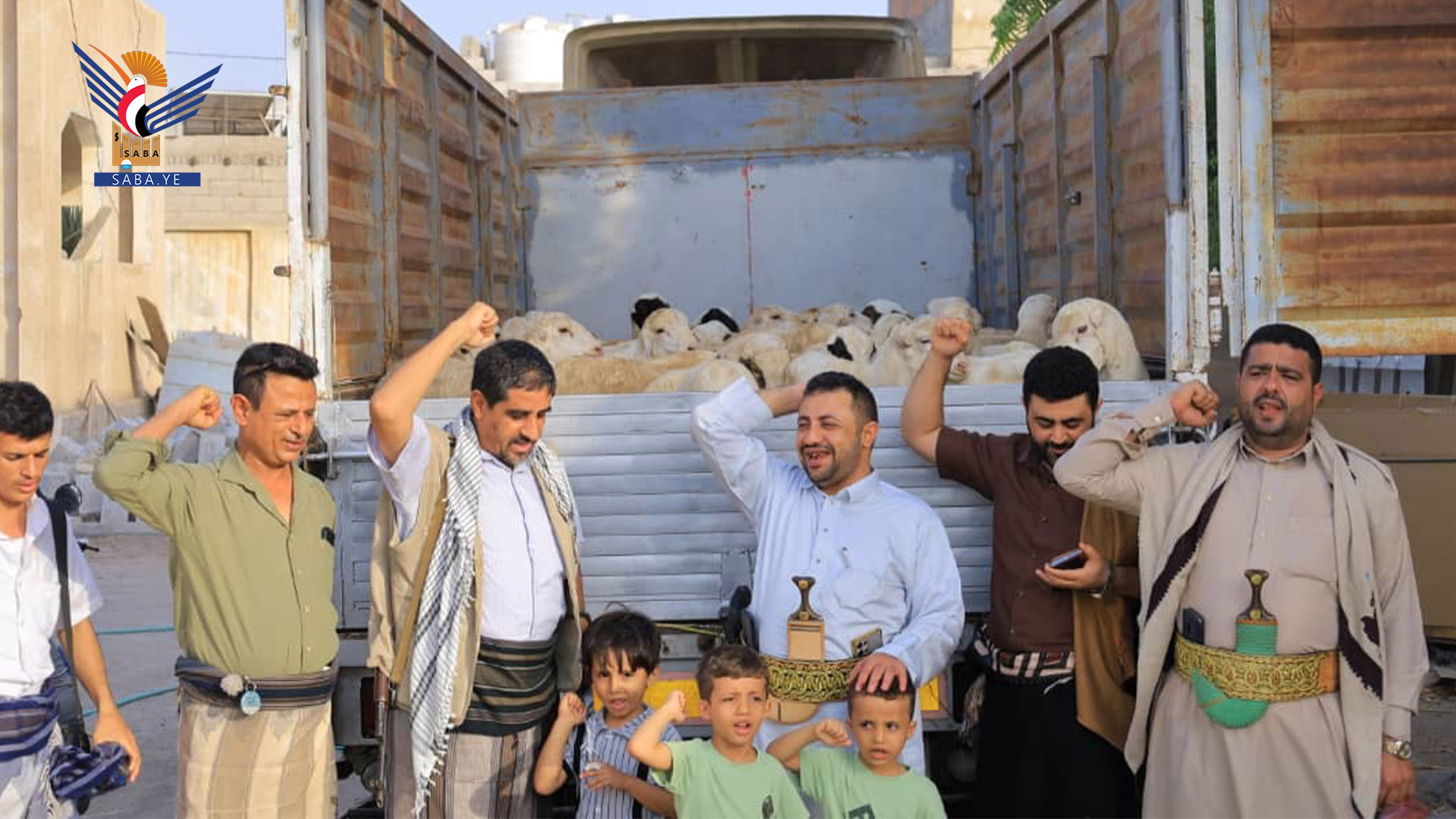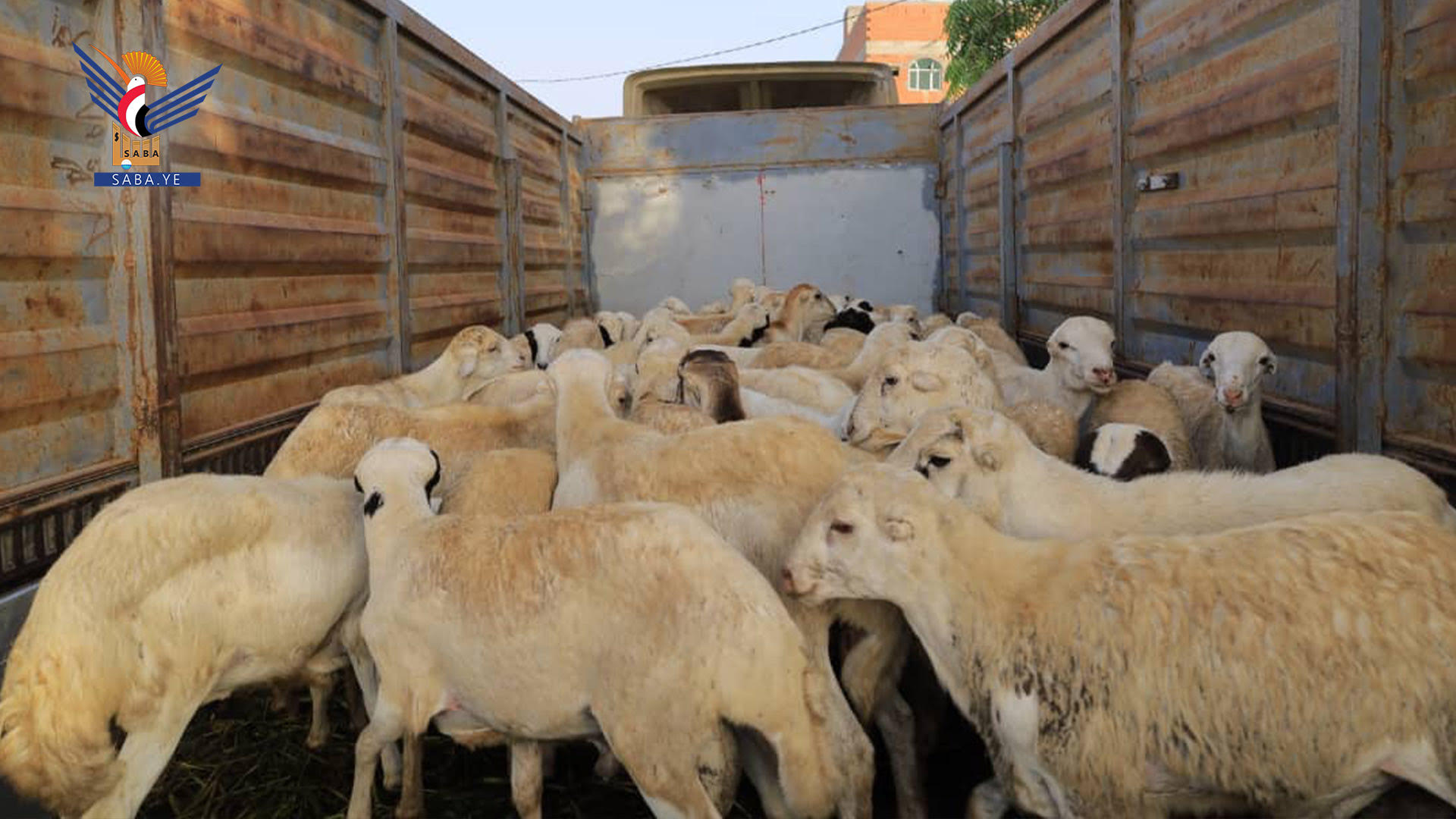
Hodeida - Saba:
The Health and Environment Office in Al Hodeida province dispatched a convoy of Eid sacrifices on Wednesday in support of the frontline defenders on the western coast fronts.
The convoy, which included 50 heads of sheep and two calves, was launched in recognition of the defenders' sacrifices. During the event, Al Hodeida’s First Undersecretary, Ahmed Al-Bishri, expressed pride in the defenders' role on the fronts, emphasizing that such convoys are not merely seasonal initiatives but rather an extension of a longstanding tradition of supporting the mujahideen in combat zones.
He stressed that the western coast front will remain a priority for all sectors, ensuring its resilience in the face of challenges. Al-Bishri also praised the efforts of the Health Office’s leadership and field teams, both in healthcare and community support initiatives, highlighting their high national awareness.
For his part, Dr. Khaled Al-Madani, Director of the Health Office, stated that this annual convoy reflects gratitude and loyalty to the sacrifices of the mujahideen, allowing them to share in the joy of Eid. He noted that the convoy was prepared in coordination with the office’s branches and is part of broader efforts to enhance the health sector’s presence and expand its field roles.
Following the convoy’s launch, the First Undersecretary inspected the central medicine warehouses of the Health and Environment Office, reviewing the storage and distribution mechanisms for medicines supplied to over 420 health facilities across the province.
He was briefed by specialists on classification, distribution procedures, and ways to strengthen the medicine stockpile to meet healthcare needs. Al-Bishri commended the recent expansion and modernization of the central warehouses, appreciating the efforts to ensure safe storage, prevent spoilage, and guarantee fair distribution according to precise technical standards.
He affirmed that developing the province’s healthcare system requires improving the pharmaceutical infrastructure, linking it to distribution, storage, and calibration systems to ensure service continuity and enhance emergency preparedness against health risks.
The Health and Environment Office in Al Hodeida province dispatched a convoy of Eid sacrifices on Wednesday in support of the frontline defenders on the western coast fronts.
The convoy, which included 50 heads of sheep and two calves, was launched in recognition of the defenders' sacrifices. During the event, Al Hodeida’s First Undersecretary, Ahmed Al-Bishri, expressed pride in the defenders' role on the fronts, emphasizing that such convoys are not merely seasonal initiatives but rather an extension of a longstanding tradition of supporting the mujahideen in combat zones.
He stressed that the western coast front will remain a priority for all sectors, ensuring its resilience in the face of challenges. Al-Bishri also praised the efforts of the Health Office’s leadership and field teams, both in healthcare and community support initiatives, highlighting their high national awareness.
For his part, Dr. Khaled Al-Madani, Director of the Health Office, stated that this annual convoy reflects gratitude and loyalty to the sacrifices of the mujahideen, allowing them to share in the joy of Eid. He noted that the convoy was prepared in coordination with the office’s branches and is part of broader efforts to enhance the health sector’s presence and expand its field roles.
Following the convoy’s launch, the First Undersecretary inspected the central medicine warehouses of the Health and Environment Office, reviewing the storage and distribution mechanisms for medicines supplied to over 420 health facilities across the province.
He was briefed by specialists on classification, distribution procedures, and ways to strengthen the medicine stockpile to meet healthcare needs. Al-Bishri commended the recent expansion and modernization of the central warehouses, appreciating the efforts to ensure safe storage, prevent spoilage, and guarantee fair distribution according to precise technical standards.
He affirmed that developing the province’s healthcare system requires improving the pharmaceutical infrastructure, linking it to distribution, storage, and calibration systems to ensure service continuity and enhance emergency preparedness against health risks.



